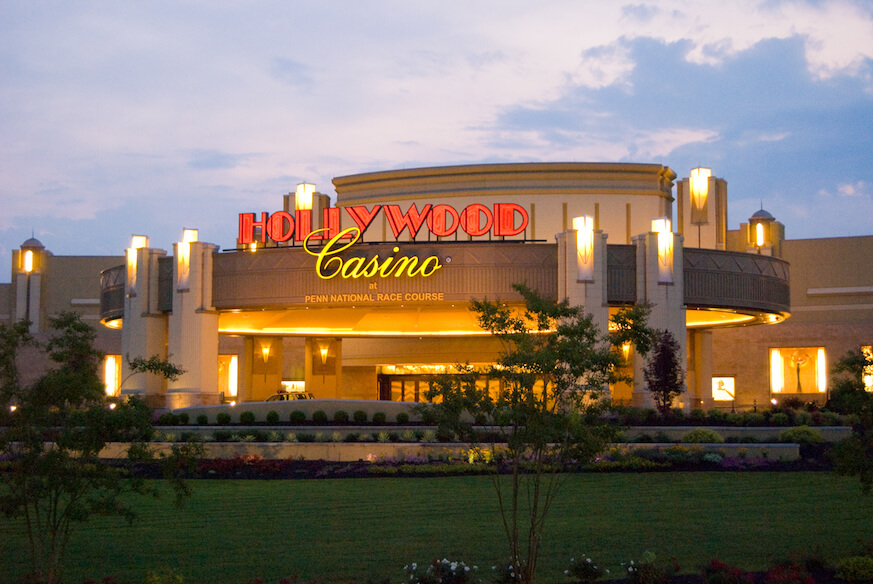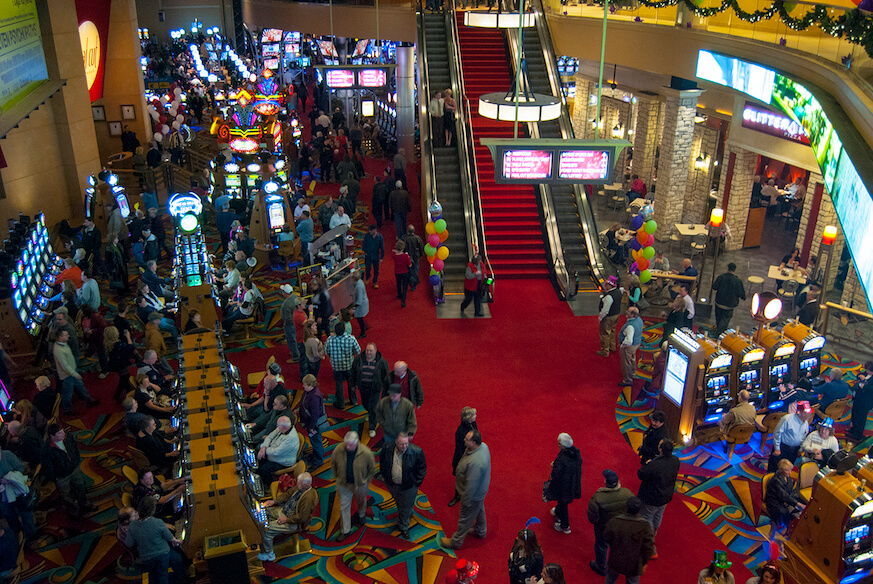Penn National Gaming Inc. of Wyomissing has been a boss in the national casino gaming and horse racing field for nearly 50 years; 40 facilities in 18 jurisdictions across the U.S., making it the largest regional gaming operator in the country.
Yet, and somehow, Penn National has not garnered as much publicity in five decades as it has it the last six weeks: First, for its October acquisition of Pinnacle Entertainment, a $3 billion purchase including 12 additional facilities to PNG’s portfolio, then for applying for two new Category 4 facilities in Pennsylvania (Hollywood Casino Morgantown, in Caernarvon Township, Berks County, and another in York at the one-time York Galleria space). Now, very quietly, Pennsylvania’s first legal sports-betting operation got going at Hollywood Casino at Penn National Race Course — the PNG mothership or cornerstone — with its initial bets being accepted on Nov. 17, after a two-day trial run. “Our soft opening,” said Penn National Gaming’s VP of Marketing Fred Lipkin, using restaurant terminology, of the Nov. 15 and 16 test run to get the bugs out.
“And barely two weeks in, we’re already getting a feel for the new audience, with a younger demographic that’s coming to that room, which is great to see,” said Dan Ihm, Hollywood Casino’s general manager.
How and why Penn National pulled off one of the most desired new aspects of casino gaming — the live sportsbook — at a time when other Pennsylvania casinos are chomping at the bit to start, says a lot about the nearly-50-year-old company.
“Our racetrack opened in August of 1972, and since that time and after the passing of casino gaming in Pennsylvania — we’ve rebuilt ourselves from the ground up,” said Lipkin, quite literally of tearing down the existing facility and developing a new, fully integrated race track/casino operation that opened in 2008.

Pennsylvania’s first sports-betting casino
When House Bill 271 passed in Pennsylvania in 2017 to allow i-gaming, sports wagering and BGT operations, Penn National not only jumped on the necessary traditional gaming licenses, PNG became the only casino operator in the state to run BGTs. “The legislation allowed, under certain restrictions and criteria, up to five slot machines and video gaming terminals to be placed at truck stops in Pennsylvania in a partnership between the casino and the gaming company,” stated Lipkin.
In regard to something as audacious as sports betting starting as quietly as it did, Ihm discussed the state-mandated two-day testing before official licenses are handed out. “Plus, on the 15th of November we had our first major snowstorm,” said Ihm with a laugh. “Everything was closed down, and a great day to test the waters of something as new as legal sports wagering. It allowed us to get all the bugs out before we could begin our advertising.”
Immediately, and since that opening, Ihm claims that he’s seeing a far younger demographic of gamers and gamblers coming into the casino than what they’re used to. “We located our sportsbook into an area that is a simulcast area (for betting on 25 to 30 horse races and tracks around the country.) because we believe that there is great synergy between the two forms of gaming. From there, we are skewing toward a far younger crowd, and a new market for us.”
Neither Ihm or Lipkin are testing new audience gamers as if they are testing the rings of a tree to check for age, but both state that 25- to 35-year-old males — mostly during the Saturday-through-Monday extended football schedules for college and NFL games — are filling their new sports book room, and eager for Penn National Gaming’s upcoming launch of casino online sports wagering.
“We have been hosting mostly 55-year-old-and-upward audiences, so it’s nice to see fresh faces in the casino,” said Lipkin. “We expanding our audience and brightening up the casino.”
























